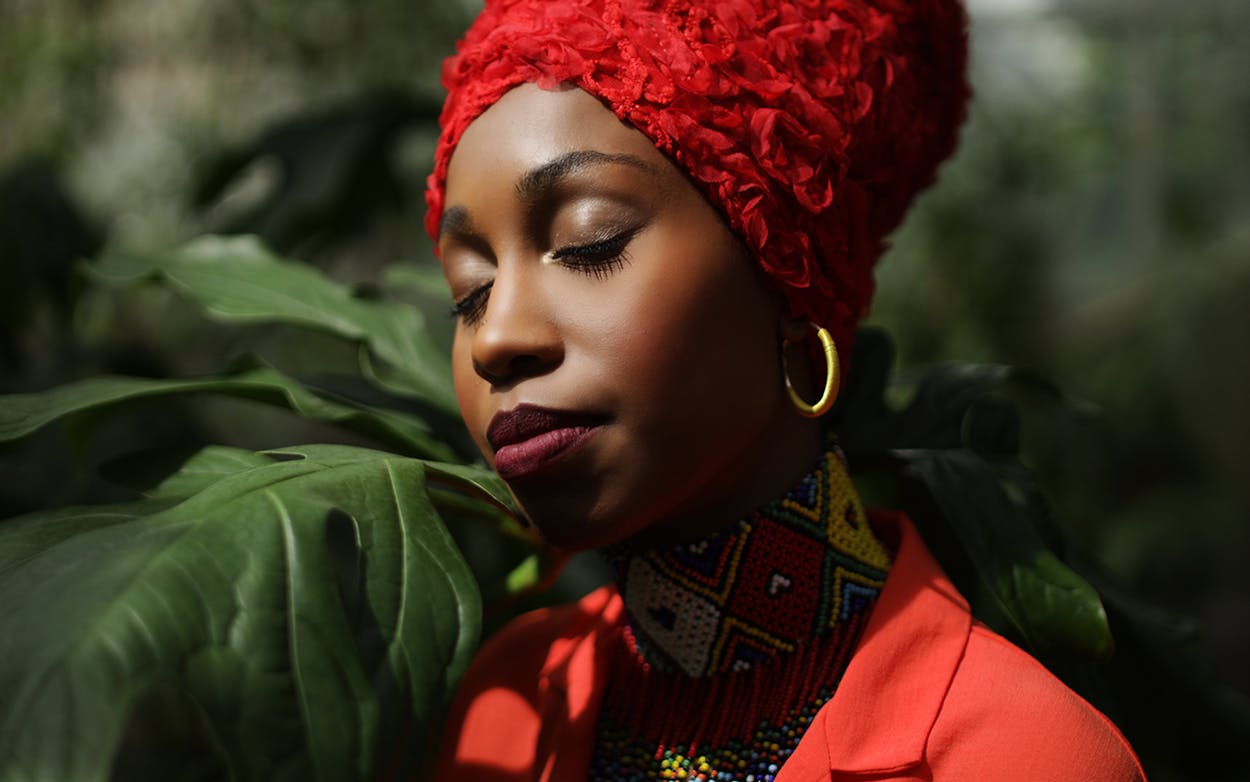Jazzmeia Horn’s preternatural musical talents emerged early on in her hometown of Dallas, first in her grandfather’s Southern Baptist choir and later at Booker T. Washington High School for the Performing and Visual Arts. Horn, 28, has since grown into one of contemporary jazz’s young icons, thanks to her inimitable vocal approach and command of generational techniques.
After graduating from The New School’s renowned Jazz and Contemporary Music program, Horn delved into New York City’s jazz scene, performing at the likes of the Apollo. In 2015, she won the Thelonious Monk International Jazz Competition, the genre’s elite tournament aimed at finding the next generation of jazz experts. Two years later, she released her debut album, A Social Call, which earned her a Grammy nomination.
Horn released her second album, Love and Liberation, on Friday. It’s a meld of original compositions rooted in community and lived experiences. The standout cover “Green Eyes” is an ode to her fellow Dallas sister Erykah Badu, and “No More” is Horn’s testimonial about embracing her beauty as a Black woman. “I remember every time I would walk out of my house in Texas when I was a little girl to catch the bus to school, and my mom or grandmother would have to walk me to the bus stop to make sure the white children didn’t pick on me,” she’s said of the song. “The buses were segregated—I had a hard time with that growing up and finally being able to look in the mirror and tell myself that I’m beautiful.”
Horn spoke with Texas Monthly about her new album and its role in liberation movements.
Texas Monthly: A common theme in your work is love for the African American community and love for Black women. Compared with A Social Call, how has that evolved in Love and Liberation?
Jazzmeia Horn: Specifically, A Social Call was to bring awareness about social injustices. Love and Liberation is different, it’s a call to action. We are aware of the different things I brought up in A Social Call. I wanted to appeal to all audiences, no matter their race, color, or creed, and get the attention of everyone throughout generations. A song everyone could attest to. Love and Liberation is saying, “Let’s do something about it.”
“Free Your Mind,” the first track on the album, is about individuality. In our society, we have been afraid to respect peoples’ individuality, based on their sexuality, creed, or culture. We put people in a box. My way of getting out of the box was liberation.
TM: In Jazz Nights in America, you spoke about the connection between your on-stage performance and the liberation of women in the world. Do you believe the modern movement for liberation is united with your music, like Nina Simone in the civil rights movement?
JH: Women should be appreciated more. We are the creators, the givers of life. Worldwide, there are women stepping up and taking responsibility where men are lacking, and I think that’s a beautiful thing. During trying times, music is able to testify for what’s going on in our society, and that’s what it’s really about. I’m grateful my music can be of assistance or aid while we’re going through this femininity process.
TM: Two generations before us, enslaved women used scat singing as an ancestral call, a vibrational hymn with the power to change things. Popularized in jazz by vocalists such as Betty Carter and Sarah Vaughan, its presence is felt throughout Love and Liberation. As audiences listen to your second album, how do you believe it’s going to influence their lives?
JH: I hope people will be inspired to be themselves, without caring about the preconceived notions or being misunderstood by others. To stop seeking for a savior, and liberate themselves. If it’s just ten people, that’s ten seeds that will grow into ten big trees. As long as it’s getting somewhere, people are hearing it, I’m totally fine.
This album is about bringing positivity to everyone who listens, but the people who want to receive a deeper message will.






